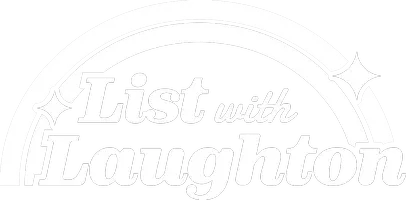Methods of Pricing Your Home to Sell: At, Above, and Below Market Price

Selling a home can be a challenging and emotional process. One of the most critical decisions you'll make is determining the right asking price. While it may seem straightforward, pricing your home appropriately can significantly impact the success of your sale. In this blog post, we'll explore three common pricing strategies: at market price, above market price, and below market price, along with their pros and cons.
At Market Price:
Pros:
-
Competitive Advantage: Pricing your home at market value can attract a broader pool of potential buyers. This is because it falls in line with the prices of similar homes in your area, making it a competitive option.
-
Faster Sale: An appropriately priced home is more likely to sell quickly, reducing the time your property spends on the market. This can save you money on carrying costs like mortgage, taxes, and utilities.
-
Appraisal-Friendly: Homes priced at market value are more likely to appraise for the selling price, which is crucial for securing financing for buyers.
Cons:
-
Limited Negotiation Room: Setting the price at market value may leave little room for negotiation. Some buyers may expect a discount or incentives, and you might need to consider these requests.
-
Appraisal Risk: While it can be an advantage, an appraisal may reveal your property is worth less than your asking price, causing potential issues during the closing process.
Above Market Price:
Pros:
-
Perceived Value: A higher asking price can create a perception of greater value and luxury, potentially attracting affluent buyers willing to pay a premium.
-
Negotiation Leverage: Pricing above market value allows room for negotiation. Buyers who want your home may still make offers, potentially meeting your desired price or close to it.
Cons:
-
Limited Interest: Pricing your home significantly above market value can alienate potential buyers who feel it's overpriced, reducing the pool of interested parties.
-
Extended Time on Market: Homes priced above market value often take longer to sell. This can lead to higher carrying costs and a risk of market stagnation.
-
Appraisal Issues: The property may not appraise for the higher asking price, making it difficult for buyers to secure financing.
Below Market Price:
Pros:
-
Quick Sale: A below-market price is likely to attract more interest, potentially leading to a faster sale. This can be a suitable option for sellers looking to offload the property quickly.
-
Multiple Offers: Pricing below market value can trigger multiple competing offers, which can drive the final sale price up.
Cons:
-
Potential Loss: You risk leaving money on the table by selling your home for less than it's worth.
-
Limited Negotiation Power: Buyers may perceive the lower price as an indication of desperation, giving them an upper hand in negotiations.
-
Appraisal Challenges: If your property appraises for significantly less than the selling price, buyers may face difficulties securing financing.
In conclusion, pricing your home for sale involves a careful balance between these three strategies. It's essential to consider your goals, the local real estate market, and the unique attributes of your property. Collaborating with a real estate agent with local expertise can provide valuable guidance in determining the most suitable pricing strategy for your home. Ultimately, the right strategy can help you achieve a successful and timely sale, while maximizing your returns.
Categories
Recent Posts











"My job is to find and attract mastery-based agents to the office, protect the culture, and make sure everyone is happy! "
